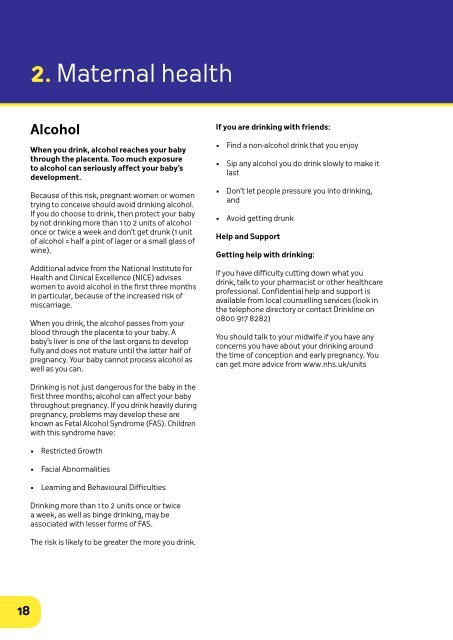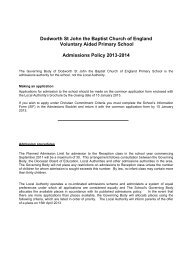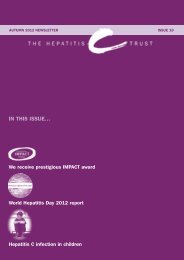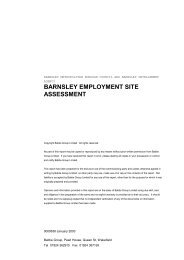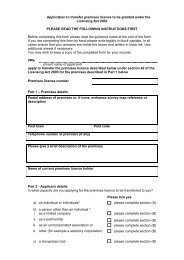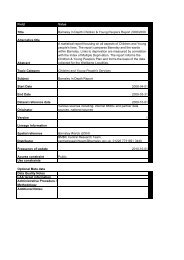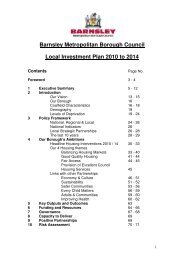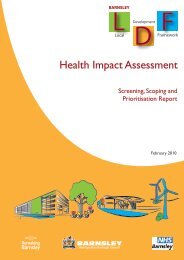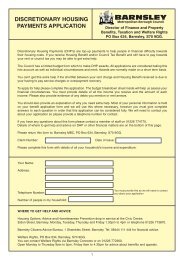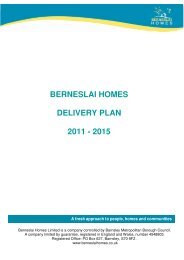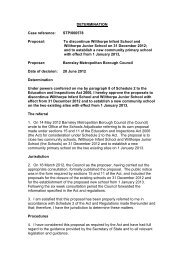Food and Nutrition Guidelines - Barnsley Council Online
Food and Nutrition Guidelines - Barnsley Council Online
Food and Nutrition Guidelines - Barnsley Council Online
You also want an ePaper? Increase the reach of your titles
YUMPU automatically turns print PDFs into web optimized ePapers that Google loves.
2. Maternal health<br />
Alcohol<br />
When you drink, alcohol reaches your baby<br />
through the placenta. Too much exposure<br />
to alcohol can seriously affect your baby’s<br />
development.<br />
Because of this risk, pregnant women or women<br />
trying to conceive should avoid drinking alcohol.<br />
If you do choose to drink, then protect your baby<br />
by not drinking more than 1 to 2 units of alcohol<br />
once or twice a week <strong>and</strong> don’t get drunk (1 unit<br />
of alcohol = half a pint of lager or a small glass of<br />
wine).<br />
Additional advice from the National Institute for<br />
Health <strong>and</strong> Clinical Excellence (NICE) advises<br />
women to avoid alcohol in the first three months<br />
in particular, because of the increased risk of<br />
miscarriage.<br />
When you drink, the alcohol passes from your<br />
blood through the placenta to your baby. A<br />
baby’s liver is one of the last organs to develop<br />
fully <strong>and</strong> does not mature until the latter half of<br />
pregnancy. Your baby cannot process alcohol as<br />
well as you can.<br />
If you are drinking with friends:<br />
• Find a non-alcohol drink that you enjoy<br />
• Sip any alcohol you do drink slowly to make it<br />
last<br />
• Don’t let people pressure you into drinking,<br />
<strong>and</strong><br />
• Avoid getting drunk<br />
Help <strong>and</strong> Support<br />
Getting help with drinking:<br />
If you have difficulty cutting down what you<br />
drink, talk to your pharmacist or other healthcare<br />
professional. Confidential help <strong>and</strong> support is<br />
available from local counselling services (look in<br />
the telephone directory or contact Drinkline on<br />
0800 917 8282)<br />
You should talk to your midwife if you have any<br />
concerns you have about your drinking around<br />
the time of conception <strong>and</strong> early pregnancy. You<br />
can get more advice from www.nhs.uk/units<br />
Drinking is not just dangerous for the baby in the<br />
first three months; alcohol can affect your baby<br />
throughout pregnancy. If you drink heavily during<br />
pregnancy, problems may develop these are<br />
known as Fetal Alcohol Syndrome (FAS). Children<br />
with this syndrome have:<br />
• Restricted Growth<br />
• Facial Abnormalities<br />
• Learning <strong>and</strong> Behavioural Difficulties<br />
Drinking more than 1 to 2 units once or twice<br />
a week, as well as binge drinking, may be<br />
associated with lesser forms of FAS.<br />
The risk is likely to be greater the more you drink.<br />
18


